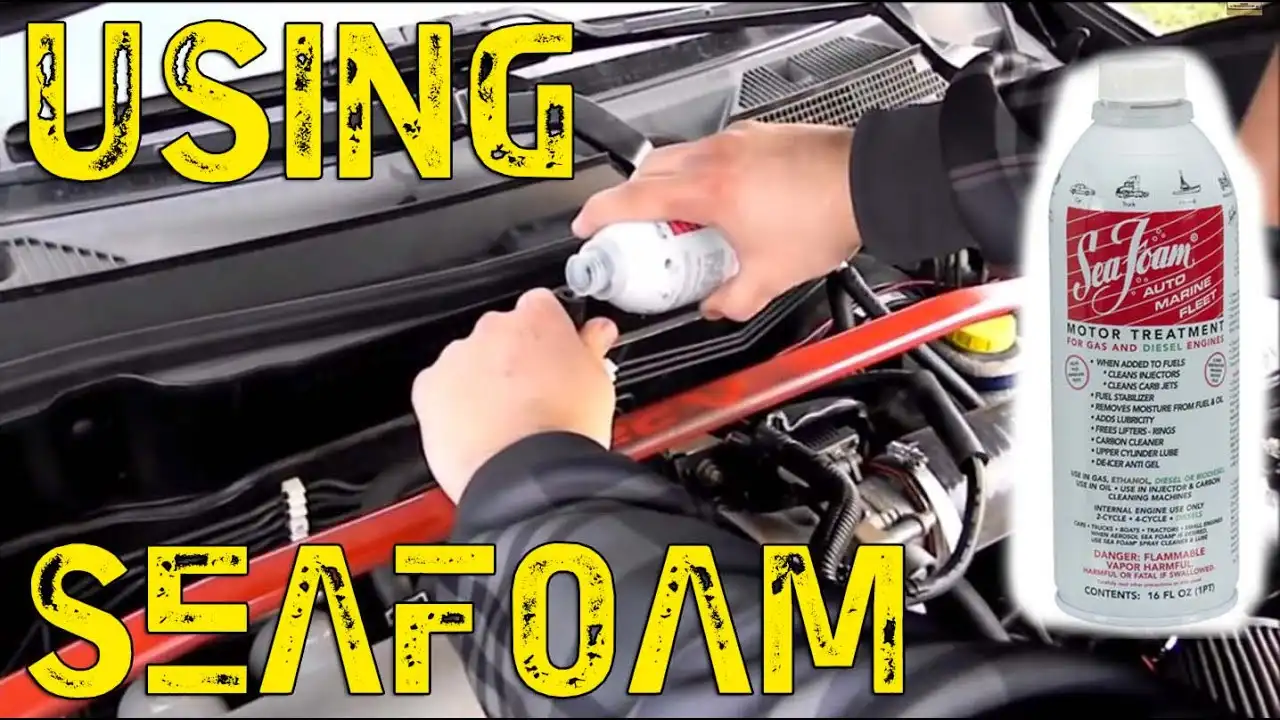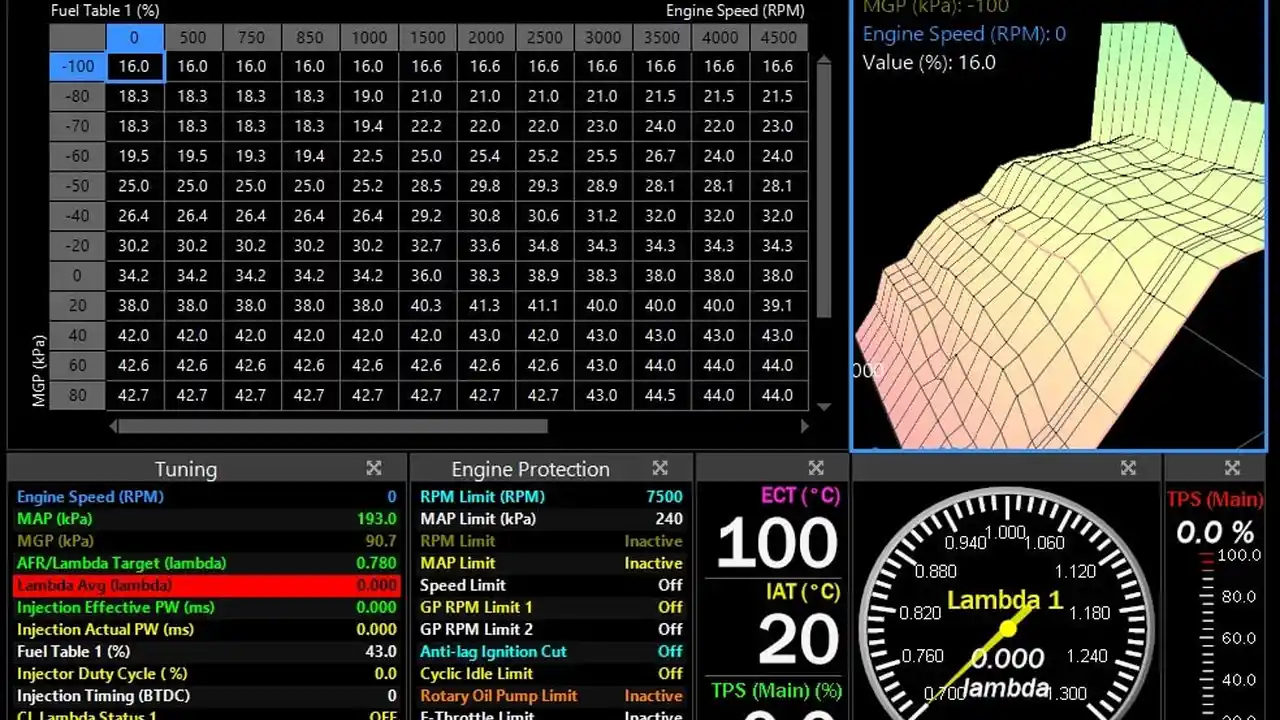7 Common Engine Upgrade Mistakes to Avoid During Installation
Learn how to properly store your car for winter protecting your engine, including stabilizing fuel, protecting the battery, and preventing corrosion. Protect your engine from damage during winter storage.

Winter Car Storage Preparing Your Vehicle for the Cold
So, winter's coming, and you're thinking about tucking your car away until the spring thaw? Smart move! Proper storage isn't just about covering it up; it's about protecting all its vital parts, especially the engine. Letting a car sit idle for months without preparation can lead to some nasty surprises – corrosion, battery drain, fuel degradation, and even rodent infestations. Let's dive into the steps you need to take to ensure your car wakes up ready to roll when the weather warms up.
Fuel Stabilization Preventing Fuel Degradation During Storage
Gasoline doesn't like to sit around. Over time, it can degrade, leading to a gummy residue that can clog your fuel lines and injectors. That's the last thing you want when you're trying to get your car started in the spring. The solution? Fuel stabilizer. It prevents fuel from breaking down and keeps your fuel system clean.
How to do it: Before storing your car, fill the gas tank almost completely. This minimizes the amount of air inside, reducing condensation and corrosion. Then, pour in the fuel stabilizer according to the manufacturer's instructions. Run the engine for a few minutes to circulate the treated fuel throughout the system.
Product Recommendations:
- STA-BIL Fuel Stabilizer: A popular and reliable choice for preventing fuel degradation in stored vehicles. It's effective for gasoline and ethanol-blended fuels. (Approx. $10-15)
- Lucas Oil Fuel Stabilizer: Another excellent option, known for its ability to clean fuel injectors and carburetors while stabilizing fuel. (Approx. $12-18)
- Sea Foam Motor Treatment: Can be used as a fuel stabilizer and also helps clean the fuel system. It's a versatile product for overall engine maintenance. (Approx. $8-12)
Comparison: STA-BIL is generally considered the gold standard for fuel stabilization, while Lucas Oil offers added cleaning benefits. Sea Foam is a good all-around product if you're looking for something that can do more than just stabilize fuel.
Battery Protection Preventing Battery Drain in Stored Cars
Batteries naturally discharge over time, and a few months of inactivity can leave you with a dead battery. Cold weather exacerbates this problem. There are a couple of ways to deal with this:
- Disconnect the Battery: The simplest solution is to disconnect the negative terminal of the battery. This prevents any parasitic drain from the car's electrical system.
- Use a Battery Tender (Trickle Charger): A battery tender monitors the battery's voltage and provides a small charge to keep it topped up. This is a great option if you want to keep the battery fully charged and ready to go.
Product Recommendations:
- NOCO Genius1 Battery Charger: A compact and versatile battery tender that can charge and maintain various battery types, including lead-acid and lithium-ion. (Approx. $30-40)
- Battery Tender Plus: A reliable and widely used battery tender that automatically switches between charging and maintaining modes. (Approx. $50-60)
- Schumacher SC1281 Battery Charger: A powerful and feature-rich battery charger that can also jump-start vehicles. (Approx. $80-100)
Comparison: The NOCO Genius1 is a great budget-friendly option for basic battery maintenance. The Battery Tender Plus is a more advanced model with automatic charging and maintaining features. The Schumacher SC1281 is a good choice if you need a charger that can also jump-start your car.
Engine Oil Change Fresh Oil for Long-Term Engine Health
Before storing your car, it's a good idea to change the engine oil and filter. Old oil contains contaminants that can corrode engine parts over time. Fresh oil will protect your engine during storage.
How to do it: Follow your car's manufacturer's instructions for changing the oil and filter. Use the correct type of oil for your car's engine. After changing the oil, run the engine for a few minutes to circulate the new oil.
Product Recommendations:
- Mobil 1 Synthetic Motor Oil: A high-quality synthetic oil that provides excellent protection against wear and tear. (Approx. $25-35 per 5-quart jug)
- Castrol EDGE Synthetic Motor Oil: Another excellent synthetic oil known for its superior engine cleaning properties. (Approx. $25-35 per 5-quart jug)
- Pennzoil Platinum Synthetic Motor Oil: A synthetic oil that's designed to provide exceptional fuel economy and engine protection. (Approx. $20-30 per 5-quart jug)
Comparison: All three of these synthetic oils are excellent choices. Mobil 1 and Castrol EDGE are known for their overall performance, while Pennzoil Platinum is a good option if you're looking for improved fuel economy.
Cooling System Inspection Checking and Protecting Your Radiator
Check the coolant level and condition. If the coolant is low or looks dirty, flush the cooling system and refill it with fresh coolant. This will prevent corrosion and protect the engine from freezing.
How to do it: Consult your car's owner's manual for instructions on how to flush and refill the cooling system. Use the correct type of coolant for your car's engine. Be sure to properly dispose of the old coolant, as it is toxic.
Product Recommendations:
- Prestone All Vehicles Antifreeze/Coolant: A universal coolant that's compatible with all makes and models. (Approx. $15-20 per gallon)
- Zerex Asian Vehicle Antifreeze/Coolant: Formulated specifically for Asian vehicles. (Approx. $20-25 per gallon)
- Peak Global Lifetime Antifreeze/Coolant: A long-lasting coolant that provides extended protection against corrosion and freezing. (Approx. $20-25 per gallon)
Comparison: Prestone All Vehicles is a convenient choice if you have multiple vehicles with different coolant requirements. Zerex Asian Vehicle is the best option for Asian cars, while Peak Global Lifetime offers the longest-lasting protection.
Tire Inflation Maintaining Proper Tire Pressure During Storage
Tires can lose air pressure over time, especially in cold weather. This can lead to flat spots and damage to the tires. Inflate the tires to the maximum recommended pressure (found on the tire sidewall) before storing your car.
How to do it: Use a tire pressure gauge to check the tire pressure. Inflate the tires using an air compressor or at a gas station. Over-inflating slightly is preferable to under-inflating.
Rodent Prevention Keeping Mice and Rats Away From Your Car
Rodents love to nest in cars, especially during the winter. They can chew on wires, upholstery, and other parts, causing significant damage. Take steps to prevent rodents from getting into your car:
- Seal Up Entry Points: Check for any holes or gaps in the car's body and seal them up with steel wool or caulk.
- Use Rodent Repellents: Place rodent repellents, such as mothballs or peppermint oil-soaked cotton balls, inside the car.
- Set Traps: Set mouse traps around the car to catch any rodents that do manage to get inside.
Product Recommendations:
- Tomcat Mouse Traps: Effective and easy-to-use mouse traps. (Approx. $5-10 for a pack of traps)
- Fresh Cab Rodent Repellent: A natural rodent repellent made from plant-based ingredients. (Approx. $15-20 per pouch)
- Mothballs: A traditional rodent repellent, but use with caution as they can be toxic. (Approx. $5-10 per bag)
Comparison: Tomcat Mouse Traps are a reliable way to catch rodents that have already entered your car. Fresh Cab Rodent Repellent is a safer and more environmentally friendly option for preventing rodents from entering. Mothballs are effective but should be used with caution due to their toxicity.
Cleaning and Waxing Protecting the Paint from the Elements
Wash and wax your car before storing it. This will protect the paint from dirt, dust, and other contaminants that can damage the finish over time. A good wax will also help prevent rust.
How to do it: Wash your car thoroughly with soap and water. Apply a coat of wax according to the manufacturer's instructions. Buff the wax to a shine.
Product Recommendations:
- Meguiar's Gold Class Car Wash Shampoo & Conditioner: A high-quality car wash soap that cleans and conditions the paint. (Approx. $10-15)
- Meguiar's Ultimate Wax: A long-lasting wax that provides excellent protection against the elements. (Approx. $20-25)
- Chemical Guys Butter Wet Wax: A user-friendly wax that's easy to apply and buff. (Approx. $20-25)
Comparison: Meguiar's Gold Class Car Wash and Ultimate Wax are a popular and reliable combination for car cleaning and protection. Chemical Guys Butter Wet Wax is a good option if you're looking for something that's easy to use.
Covering Your Car Protecting from Dust and Scratches
Cover your car with a car cover to protect it from dust, dirt, and scratches. Choose a car cover that's breathable to prevent moisture buildup.
How to do it: Choose a car cover that's the right size for your car. Make sure the car is clean before putting the cover on. Secure the cover to prevent it from blowing away in the wind.
Product Recommendations:
- Budge Lite Car Cover: A budget-friendly car cover that provides basic protection against dust and dirt. (Approx. $30-50)
- Covercraft WeatherShield HP Car Cover: A high-quality car cover that provides excellent protection against all types of weather. (Approx. $200-300)
- Leader Accessories Car Cover: A waterproof and breathable car cover that's suitable for indoor and outdoor use. (Approx. $50-70)
Comparison: The Budge Lite Car Cover is a good option if you're on a budget. The Covercraft WeatherShield HP Car Cover is the best choice for maximum protection, while the Leader Accessories Car Cover offers a good balance of price and performance.
Exhaust System Protection Preventing Corrosion in Exhaust Pipes
Moisture can accumulate in the exhaust system and cause corrosion. To prevent this, you can insert a steel wool pad into the tailpipe to absorb moisture. Remove the pad before starting the car in the spring!
Parking Brake Releasing Parking Brake to Prevent Sticking
If you're storing your car for an extended period, it's best to release the parking brake to prevent it from sticking. Use wheel chocks to keep the car from rolling.
Regular Check-Ups Inspecting Your Stored Vehicle Periodically
Even with all these precautions, it's a good idea to check on your car periodically during storage. Start the engine every few weeks and let it run for a few minutes to circulate the oil and prevent the battery from draining completely. Also, check for any signs of rodent infestation or other problems.
By following these tips, you can ensure that your car stays in good condition during winter storage and is ready to hit the road when spring arrives. Happy storing!
:max_bytes(150000):strip_icc()/277019-baked-pork-chops-with-cream-of-mushroom-soup-DDMFS-beauty-4x3-BG-7505-5762b731cf30447d9cbbbbbf387beafa.jpg)






